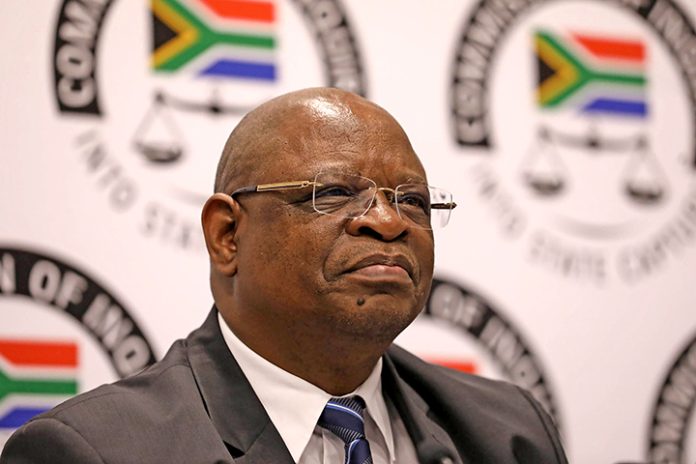The EFF has put Chief Justice Raymond Zondo in a corner in their fresh bid to get the National Assembly’s rejection of the section 89 panel report on Phala Phala set aside.
This is contained in papers filed by the Red Berets with the apex court seeking to have the decision to reject the Phala Phala panel report declared irrational and unlawful.
In the papers, among the EFF arguments is that the panel report was rejected because the ANC “abused its majority” in parliament.
According to the founding affidavit by EFF leader Julius Malema, the ANC caucus, by voting to reject the panel report, was doing something Zondo had warned against in one of his State Capture Commission reports.
Malema cites Zondo’s warning that MPs should not be subjected to bullying by their political parties to vote for wrong decisions simply because they’re toeing the party line.
“Despite it’s clear legal obligations, the ANC has, once again, and in defiance of what the Chief Justice identified in the State Capture Report, used its majority to politically protect a sitting president regardless of the legal merits of the case he must answer,” reads Malema’s affidavit.
“Importantly, and especially for this court to bear in mind, the Panel reached these prima facie conclusions after considering, analysing, and evaluating the evidence before them.
“Following this exercise, the Panel reached the conclusion that the grounds listed in Section 89(1) of the Constitution had been met, and the President does have a prima facie case to answer.”
Party-line bullying
According to Malema, the manner in which the ANC voted on the panel report was no different from how the party had been voting over the years, which Zondo expressed his reservations about during his State Capture Report.
In fact, according to Malema, this is proven by a statement ANC national chair Gwede Mantashe made to the governing party’s caucus before the vote on the panel report, where he appeared to be threatening ANC MPs of harsh consequences they may face for voting against the party line.
Mantashe allegedly told the ANC MPs that just like Makhosi Khoza, a former ANC MP, was dealt with for voting against the party line during the Zuma years, which got her in hot water, the current lot would have been met with the same fate if they even thought of voting against the party line.
Malema argued that this goes against Zondo’s warning and quoted specific parts from Zondo’s State Capture Report where he berated the ANC’s majoritarian conduct in parliament.
Zondo wrote in his report: “It is unacceptable for a minister or fellow party members to castigate a member of parliament for attempting to hold a minister [of a sitting president] to account or for asking difficult questions of persons regarded as comrades or deployers of the same party.
“It is inappropriate for a party caucus to resolve not to permit or discourage conduct amounting to legitimate parliamentary oversight over the executive.
“It is also inappropriate for members of parliament not to inquire into allegations of misconduct for which there appears to be plausible evidence, on the basis that to do so could cause embarrassment to organise divisions within a political party.”
Apex court challenged to act
Malema argues that the judges at the apex court must look into the EFF application through these lenses.
It remains to be seen if Zondo and his colleagues will stick to their own assertions about how members of parliament ought to conduct themselves when faced with the task of holding a member of the executive, such as the President, accountable.
“By potentially placing the ANC’s political incentives above it’s legal duties to the Republic, the National Assembly’s decision to reject the Phala Phala panel report has the purpose, or effect, of not holding the Executive to account,” charges Malema in the court papers
“This conduct was criticised by Chief Justice Zondo in one of his many reports into state capture. In fact, the Chief Justice designated an entire chapter to the failure of Parliament to hold the Executive to account.”



